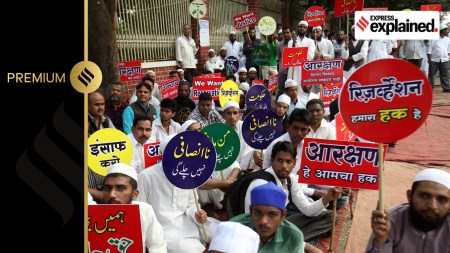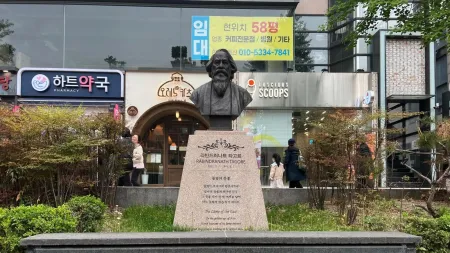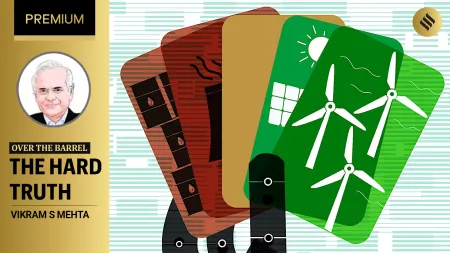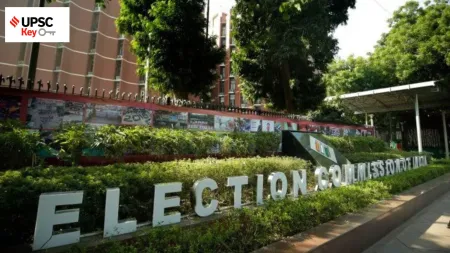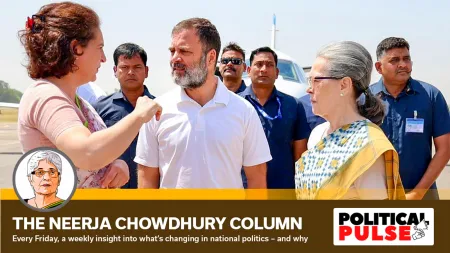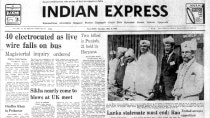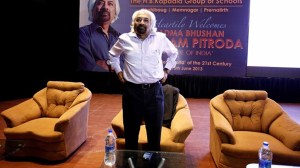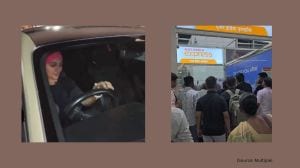- India
- International
Unsung heroes who can strengthen India’s response to Covid-19
The family/community doctor is an institution in India: from cold and cough to broken bones and chronic diseases, this doctor often advises entire families on a range of health issues.
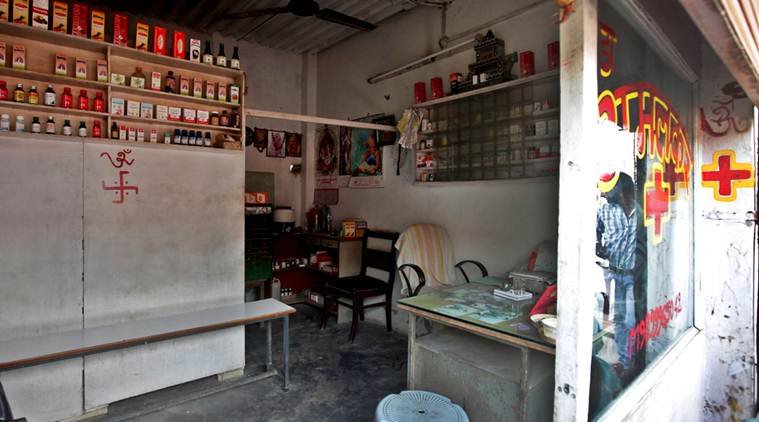 Covid-19: Outside Tier 1 cities, where there are fewer doctors and medical facilities, family doctors are even more central to the health of a community. File/Express Photo by Amit Mehra
Covid-19: Outside Tier 1 cities, where there are fewer doctors and medical facilities, family doctors are even more central to the health of a community. File/Express Photo by Amit Mehra
Think about the last time you went to see a doctor: were you running a temperature? Did you have body ache, a cough, a stuffy nose and perhaps some trouble breathing? If this scenario sounds ominous to you now, you’re not alone.
Now think about whether you went to a big hospital or a private clinic down the road. If it was the latter – and it is for many in India – then this primary healthcare provider, your family doctor, is invaluable in maintaining your personal health.
The family/community doctor is an institution in India: from cold and cough to broken bones and chronic diseases, this doctor often advises entire families on a range of health issues. Outside Tier 1 cities, where there are fewer doctors and medical facilities, they are even more central to the health of a community.
Indeed, the NITI Aayog has acknowledged the role solo practitioners play in India’s healthcare landscape. “The private sector is the foremost provider of healthcare. Notwithstanding the emergence of an organized and increasingly visible corporate subsector, private provision remains dominated by solo practitioners, small providers and stand-alone hospitals in which Fee-For-Service (FFS) is the main method of payment, ” wrote Gerard La Forgea in “Organization and Provision” in Health System for a New India: Building Blocks: Potential Pathways to Reform, a report published by the NITI Aayog in November 2019.
Yet these are challenging times – the World Health Organization declared Covid-19 a pandemic on March 11. And in mounting a large and appropriate response to it, the health ministry has centralised some of the Covid-19 caregiving functions. Doctors in private clinics have for now been asked to refer all Covid-19 suspected cases to specialised centres. This approach has its pros and limitations.

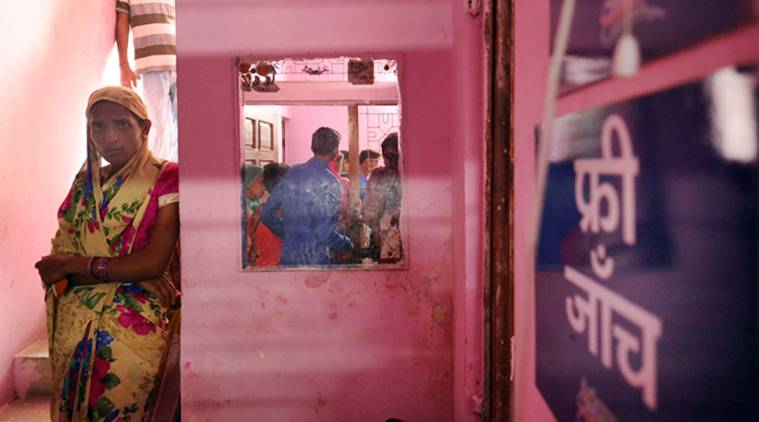 Covid-19: Patients wait for a doctor at a community clinic in Delhi. File/Express Photo by Praveen Khanna.
Covid-19: Patients wait for a doctor at a community clinic in Delhi. File/Express Photo by Praveen Khanna.
The pros are that there are, to begin with, some 600 hospitals with around 1.05 lakh beds dedicated to Covid-19 care in India. A fair number of these have assured oxygen support and provisions for critical care. Doctors and volunteers from all over the country are also offering their time and expertise to patients in these centres.
One limitation of this plan, though, is that care centres and hospital beds may not be accessible to those living in a remote village, especially during the nationwide lockdown which has now been extended till May 3 – it simply may not be possible to transport the sick over hundreds of kilometres to the nearest Covid-19 designated hospital.
From Explained: How coronavirus attacks, step by step
Another possibility that could arise sooner rather than later, is that patients could walk into busy clinics unaware that they have the coronavirus infection. While there exist guidelines on wearing masks as well as helpline numbers that the general public can call on for diagnosis and treatment instead of visiting a clinic, past experience has shown us that it can take considerable time for it to trickle down to every last community.
In short, whether they are ready or not, local doctors will get pulled into the fight against coronavirus.
However, the government seems to be preparing for this already: there are online iGoT courses for Covid-19 patient care, video tutorials and posters on everything from putting on the PPE to hand hygiene in the hospital as well as pamphlets and booklets for primary caregivers.
There are some gaps in this preparation that public health workers and community workers can help fill. Here are four thoughts on what those in the health community can do in building preparedness:
Let’s map all our healthcare providers
India has 11.57 lakh registered allopathic doctors as of 31 January 2019, many of them working in private clinics and smaller set-ups. Our community workers and NGOs could help identify and map them.
This will ensure they get all the right PPE, training guides and necessary equipment. It will also allow India to monitor the condition in individual communities in a much better way. An added bonus from a public health point of view: mapping where our doctors are, the infrastructure available to them and the size of the community they service will help us deliver better healthcare in the future, too.
Let’s give these doctors knowledge support
There already are online courses, webinars and videos by the health ministry as well as WHO to help medical practitioners educate themselves on COVID-19. Those in the health community can take this further by preparing training modules – some NGOs were doing this even before the outbreak. An example that comes to mind is Noora Health that was working within hospitals to train family members in home-based care. They could restructure some of their modules to train primary caregivers in proper precautionary measures and care protocols relevant to this pandemic.
For knowledge-sharing, we could organise helplines for these doctors so they can reach out to their colleagues and medical mentors to discuss cases and seek guidance on next steps. Having an experienced mentor to sound out ideas and work out problems with could be immensely useful.
From Explained: How COVID-19 is affecting immunisation campaigns for measles, other diseases
Let’s give them personnel support
The WHO has recommended that where Covid-19 patients are getting home-based care (recommended for around 80 per cent of patients with mild infection), a healthcare worker should be assigned to assess the health of the patient and to verify if adequate arrangements have been made to care for the patient while observing all the precautions.
However, doctors will likely be overburdened at this time. NGOs and community healthcare workers could perform this role of educating home-based caregivers. Community workers could also take the lead in educating patients on hygiene and preventive measures.
Let’s give our doctors additional support to treat other illnesses
As the world fights Covid-19, the focus has shifted away from many other ailments. In some countries, support for polio vaccination has been temporarily withdrawn. Ebola claimed two lives in DR Congo last week. In India, patients with heart disease, kidney disease, and many other ailments are being forced to forego important check-ups and procedures. Primary healthcare providers will have to pick up these reins, too, eventually. They will need additional support for this.
The government has issued new guidelines for telemedicine – consulting a doctor over phone or Internet instead of in person. Doing this can reduce the chances of accidental transmission in a clinic setting. Telemedicine Society of India, with support from DH India, is running free webinars for doctors to train them on these new guidelines. (Full disclosure: myUpchar is supporting TSI in doing this.)
Together, these four steps will help doctors and caregivers get-set for whatever comes next – whether we manage to flatten the curve or we hit an inflection point and the number of cases rises for before plateauing. Either way, building preparedness now would help us rise to the challenge.
– This is the third article in a five-part series, supported by myUpchar. Nachiket Mor, PhD, is Visiting Scientist, The Banyan Academy of Leadership in Mental Health. Manuj Garg, PhD is Cofounder of myUpchar. The first article was about four things India can do to break the chain of COVID-19 transmission faster, and the second was about safeguarding the most vulnerable people in this health crisis: the elderly. In the fourth article, they will talk about ways to manage COVID-19 while scientists work on our wishlist of vaccines and coronavirus medicine.
EXPRESS OPINION
More Explained
May 08: Latest News
- 01
- 02
- 03
- 04
- 05



